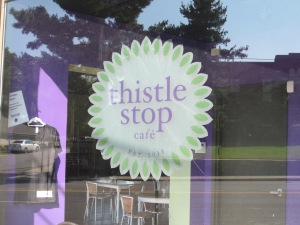By Rev. Sandra Hasenauer
 Golden Retrievers have got it goin’ on.
Golden Retrievers have got it goin’ on.
Food, friends, and fun. They don’t need much else from life, really. Just food, friends, and fun. The order of those priorities can change from moment to moment, of course, but they like to keep things simple. It’s all good if you’ve got a tennis ball, someone to throw it for you, and a treat waiting for you when you go back inside.
I like to try to learn from the Golden that lives with me in my house. For me to stay balanced, those three “fs” could certainly go a long way. Of course, I’d also add another “f” to that list: “faith.” I can deal with a lot in life if I just keep myself focused on faith, friends, fun, and that occasional meal to keep me going.
For women of faith, the phrase “self-care” can often feel too self-ish. Aren’t we supposed to pour ourselves out for others? Aren’t we supposed to sacrifice, put everyone else before ourselves, and work tirelessly for God’s will here on earth?
Well, yes and no. We are supposed to work for God’s will, we are supposed to have compassion for others and work towards the betterment of all, and sacrifice does come into it. But there comes a point at which, if we don’t care for ourselves, we no longer have anything left to give. We can become physically unhealthy, thereby limiting our ability to be out and about in the world. We can become emotionally strained, our interactions with others cased in feelings of resentment or irritability. We can become spiritually dry, no longer experiencing that deep and personal indwelling with God that gives us our purpose in the first place.
In the last couple of years, I’ve been working hard on changing how I look at my calendar. Rather than looking at the calendar as a series of empty time slots waiting to be filled, I’ve been training myself to look at it as chunks of energy. For years, I had been in the habit of responding to every request or opportunity that came along by thinking, “I don’t have too much going on that week…I guess I should say yes,” or “Sure, that won’t take too long. I can fit it in.” You can predict the end of that story. In fact, I’m positive you’ve lived that story yourself–and are, perhaps, even living it now.
The change came when I realized I was tired of being tired. I was tired of feeling unhealthy and, frankly, cranky. It took me awhile, but I figured out that time wasn’t the issue. Let’s face it: Some things take more out of us than others. Just because something may not take too much time, doesn’t mean it doesn’t take an extraordinary amount of our spiritual and/or emotional energy. Once I learned how to look at my calendar as units of energy rather than units of time, I was able to reframe the question. How does God want me to expend my energy? What are those things I should prioritize in my schedule that will help me build or renew my energy reserves? What are things that–while they may be great things–are not things that I should be spending my energy on? And how will my saying ‘no’ actually empower others?
And all that means, if I have empty slots of time on my calendar, that emptiness is exactly what needs to exist in those moments. I’m renewing my energy for the next thing God would have me do. And if I say ‘no’ to something, that leaves room for someone else to say ‘yes.’ Who am I to predict how God might be wanting others to expend their energies?
What a concept.
If this is ringing bells for you, here are some questions you might want to ask yourself next time you look at your calendar: What are those responsibilities that will take more energy than others? How can you make space for them, to be more effective in meeting those responsibilities creatively? What are those things you need to make time for that will help you gain or renew your energy? Are there responsibilities you’ve taken on that aren’t high on God’s priority list for you–that you’re doing out of a sense of obligation, not wanting to disappoint someone, simply because you feel like you should? If you said ‘no’ to something, would it give someone else a chance to say ‘yes’?
It’s time for me to stop writing blog posts and go play with a certain Golden in my house. He and I will both be the better for some time with a tennis ball. How are you going to care for your energy today?
 This blog post is contributed by Rev. Sandra Hasenauer, associate executive director of American Baptist Women’s Ministries, and companion to two dogs who make great sermon illustrations on a regular basis.
This blog post is contributed by Rev. Sandra Hasenauer, associate executive director of American Baptist Women’s Ministries, and companion to two dogs who make great sermon illustrations on a regular basis.
Do you enjoy this blog? Help it continue by supporting American Baptist Women’s Ministries. Click here to donate. American Baptist Women’s Ministries is a diverse community of American Baptist women and girls engaged in ministry in Christ’s name. With local, area, region/state, and national levels of ministry, AB Women’s Ministries creates a community of passionately faithful, mission-minded women and girls engaged in worship, service, and friendship.











